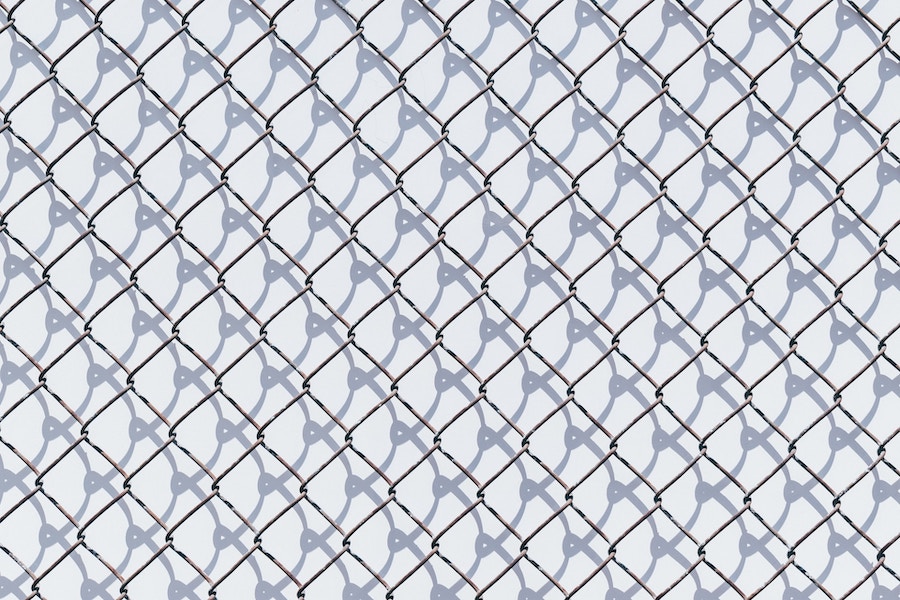How the Russian state is introducing repression into the educational system
Dmitry Dubrovsky
Photo: As 2023 comes to a close, a clear system of political control and repression is taking hold of Russian higher education. Photo by Khara Woods on Unsplash
Amid the ideologization, militarization, and, ultimately, deintellectualization of Russian higher education and science, scientists continue to stage a covert but active “resistance of the weak.”
In response, the Russian regime has not only doubled down on its repressive measures, but also constructed a new system of political and ideological control over Russian state universities.
British Intelligence Taking an Interest in Russian Universities
A recent British Intelligence update (October 2023) states that Russian universities received direct orders from the Ministry of Education and Science instructing them to “avoid open discussion of any ‘negative political, economic and social trends’ in Russia during academic activities.”
This announcement may seem surprising, but only at first glance. While Russian universities rarely find themselves under the scrutiny of foreign intelligence agencies, recent events make it easier to see why British intelligence initially gained interest in the state of academic freedom within Russian universities.
The Russian government appears to be expanding its direct ideological control over higher education.
Another Power Vertical
The reasoning behind this—the desire to create a kind of ideological power vertical—is stated openly:
“Under conditions of global ideological opposition, the role of education becomes a matter of choice for the younger generations and an issue of survival for the government. This understanding became the basis for establishing an educational ecosystem from grade school to university. Today, this includes the ‘DNA of Russia’ project, updated history curriculums and textbooks, a course on the Fundamentals of Russian Statehood, educational advisors, vice-rectors for youth policy and educational work, and other components. This way, the foundations of citizenship and patriotism are outlined during every stage of a young person’s education…”
This list contains precisely those elements that we identified as significant ideological amendments to Russian higher education—primarily the DNA of Russia project and the Fundamentals of Russian Statehood course.
It is interesting that vice-rectors for youth policy and educational work are also named among the fundamental elements of this new system of ideological control.
Where Are the Threats Coming From?
The state’s view of the scale of the threat posed to higher educational institutions is evident from an incident that happened back in 2020.
A prosecutor from the Nikulinskaya Inter-District Attorney’s Office in Moscow sent an inquiry to the Russian Presidential Academy of National Economy and Public Administration (RANEPA). As the University Solidarity Union rightly pointed out, along with the request to investigate “anti-Russian forces,” “pro-American influence groups,” and other familiar “enemies” to the Russian authoritarian state, the inquiry also asked about a number of activities that, even under the current repressive Russian legislation, are not illegal. For example:
- training election observers;
- initiatives to change legislation; and
- promoting liberal and democratic values…
According to the attorney’s office, these activities should arouse suspicion among the university authorities and provoke retaliatory actions to “eradicate” them.
Who Protects against “Enemies” to Academia?
In Russian universities, monitoring has traditionally been performed by vice-rectors for security. Political censorship and repression have recently been added to their normal duty of protecting state secrets.
Several key universities have long been under the direct control of the Federal Security Service (FSB). This has been acknowledged by those close to the issue, including former Higher School of Economics (HSE) employee Andrei Yakovlev. Recently, this control was transferred from the economic security service of the FSB to the department “for the Protection of Constitutional Order and Combating Terrorism.”
Evidence of the FSB’s active interference in the affairs of Russian universities—primarily through the very same “vice-rectors for security”—has surfaced before.
- Take, for example, the dismissal of political scientist Gleb Yarovoy, a lecturer at Petrozavodsk University, in which the vice-rector responsible for relations with the “state security forces” was directly involved.
- A similar incident was the dismissal of St. Petersburg State University historian Mikhail Belousov, for which Vice-Rector for Security Dmitry Gryaznov was commended. He personally sent a statement to law-enforcement agencies regarding Belousov’s statements criticizing the war.
- No less striking is the case of HSE Vice-Rector Alexey Koshel, who personally signed the order to dismiss teacher Ilya Inishev for allegedly “committing an immoral act.”
It seems that the main instrument of repression employed against academic dissidents is the vice-rector. It is no coincidence that their number includes representatives of the political police force—the so-called “Department for Combating Extremism,” also known as “Center E.” This was the case at St. Petersburg State University, where upon retirement from his post as head of the St. Petersburg branch of Center E, Oleg Shaidulin, who was well-known to St. Petersburg activists, became the deputy vice-rector for security.
Who Monitors the Students?
As for students, the main instrument of repression has long been the university administration and the rectorate, or even the Ethics Committee.
In the summer of 2022, this situation changed drastically, with the introduction of two new institutions responsible for “loyalty and patriotism.”
Vice-Rectors for Youth Affairs
During a conference on academic freedom in Yerevan at the end of October, Daria Gerashchenko, a researcher from the European University at St. Petersburg (EUSP) gave a report on vice-rectors for youth and educational work, a position introduced in June 2022 that all universities must fill.
Gerashchenko’s comparison of the scientific activity of different vice-rectors revealed that the rate of international publications is lower among vice-rectors for student affairs and/or youth policy (the posts are combined at some universities). These figures are on average even lower than those of vice-rectors for security, who, as a rule, are not very active in the research field.
These data allow us to conclude that vice rectors for youth affairs are the least valuable personnel from a professional point of view.
Notably, there are very few of these vice-rectors at those universities where they train cadres for law-enforcement agencies like the Ministry of Internal Affairs, the Federal Penitentiary Service, and the FSB. It can be assumed that the state has greater confidence and trust in these institutions. The traditional educational system, meanwhile, requires greater ideological and political control.
Citizenship Centers
At the same time, another repressive body has popped up in Russian universities—one which, out of habit, pretends to be preventative. This is the “coordination center for developing an active civic position among the youth, preventing interethnic and interfaith conflicts, countering the ideology of terrorism, and preventing extremism.”
Active construction of these centers in every subject of the Russian Federation has been ongoing since 2021. According to official information, the centers must monitor not only the extensive list of activities mentioned in their name, but also “fake news” and the “spread of disinformation.”
Given that the country is at war, the “extremism prevention” centers will in reality be the civilian version of the counter-extremism departments located at the main university in the region.
The Coordination Center Regulations contain a key point: “implementation of work to prevent the involvement of the youth in organizations and public associations of a destructive nature.”
The modern Russian government considers any groups not controlled by the state to be destructive—from skinheads to Navalny supporters, from soccer fans to followers of new religious movements. According to official opinion, they are all subjects that require “preventative” monitoring.
At the same time, the statement about the need to “monitor disinformation” points directly to another function of these centers: monitoring students’ and teachers’ social media accounts in search of any information that “discredits the Russian armed forces” or is “fake news.”
* * *
As 2023 comes to a close, a clear system of political control and repression is taking hold of Russian higher education. This includes
- vice-rectors for security;
- vice-rectors for youth policy; and
- in large regional universities, coordination centers, essentially anti-extremism departments for universities, which are responsible for the affairs of the entire region.
The purpose of this system is obvious: to increase ideological and political control over teachers and students at Russian universities in the run-up to the 2024 presidential elections and in the context of the military aggression in Ukraine.





0 Comments